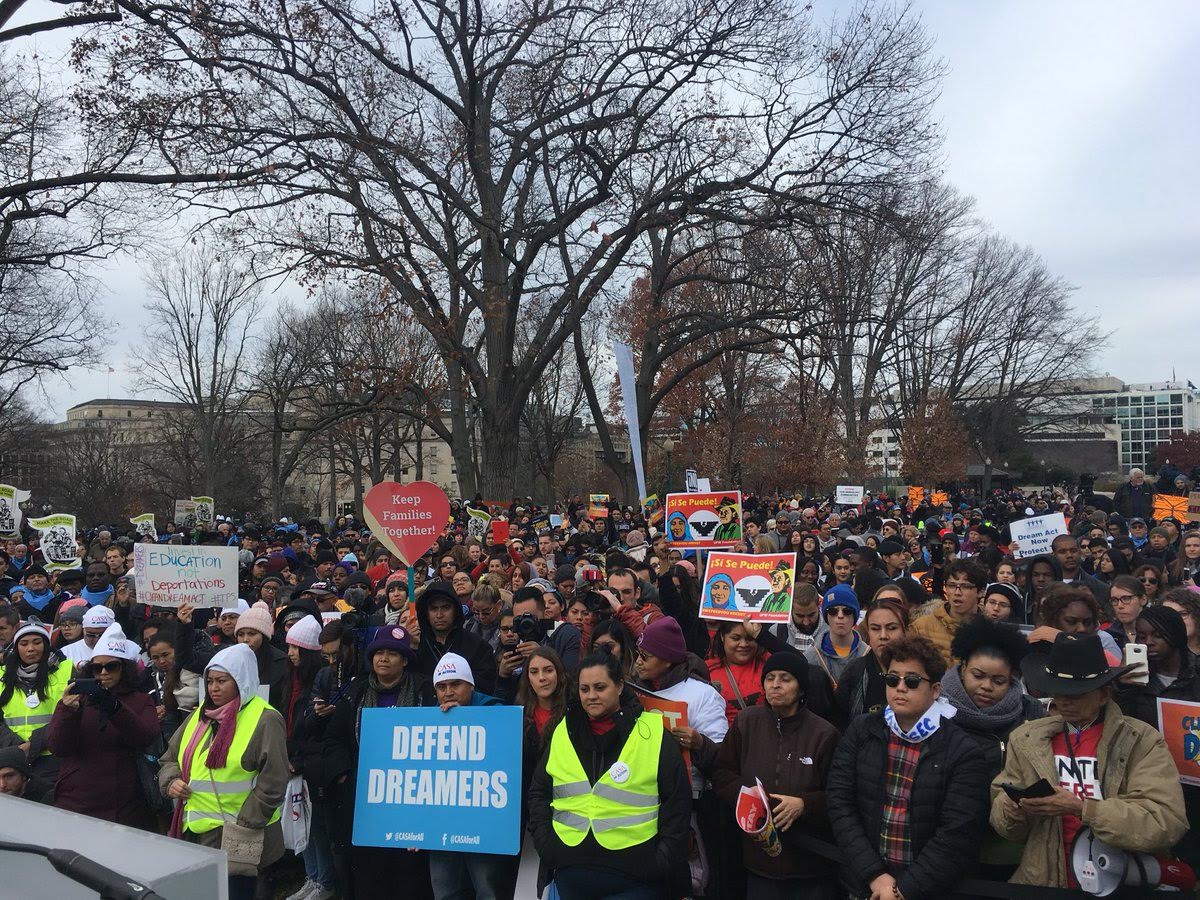
Kica Matos
Three Yale professors were arrested in Washington, D.C., on Wednesday for engaging in civil disobedience in support of immigrant rights.
On Wednesday, over 10,000 people rallied at Upper Senate Park in Washington in support of the Development, Relief and Education for Alien Minors Act, or DREAM Act. Three University professors — Alicia Camacho, Zareena Grewal and Daniel HoShang — were among more than 180 protesters who were arrested after the two-hour protest for “crowding, obstructing or incommoding” by sitting on the steps leading to the U.S. Capitol.
“The civil disobedience was, in a way, a signal of what the immigrant movement is willing to do to send the message that this is important and that we are going to continue escalating so that we can protect not only Dreamers, but everyone in the immigrant community,” said Julio Lopez, the state director of Make the Road Connecticut, a community organization that fights for immigrant and worker rights. Lopez organized Connecticut residents who bussed to the nation’s capital for the protest.
Eva Malecki, the communications director for the capital police, said that those arrested would face a $50 fine and then be released.
Kica Matos, the director of immigrant rights and racial justice at the Center for Community Change and a resident of New Haven, said that as the two-hour rally — which featured speeches from legislators, state leaders and musicians — drew to a close, those who planned to engage in civil disobedience made their way to the center steps of the U.S. Capitol. They were arrested after roughly 20 minutes, according to Lopez.
Matos said that those arrested wore green gloves and armbands, which stand for hope, and held photos of immigrants who came to the U.S. under the DACA program or with temporary protective status. Beside each face was written the number of days until the pictured immigrant would be deported. President Donald Trump’s administration ended the temporary protective status program for immigrants from six majority-Muslim countries.
Matos said she asked Camacho to participate in the act of civil disobedience a month ago to Camacho’s immediate agreement. Camacho then reached out to the other professors.
Grewal, an associate professor of American studies and religious studies, told the News she has always been invested in political issues. But the political events of this week — such as Trump’s declaration of Jerusalem as the capital of Israel — made the protest more significant, she said.
“It has become an emergency situation, we’re all very committed to this, and, to me, this felt more and more urgent as the days go by,” Grewal said.
At the “electric” demonstration, Grewal said she held a photograph of a woman who has “zero days” until she is supposed to be deported.
“The idea is that I’m putting my body in her place just for a few hours to be imprisoned, and it’s really a minor sacrifice for me to do that,” Grewal said.
Camacho, a professor of ethnicity, race and migration and American studies, said in a statement that she believes migration cannot be a crime, and that immigrants and refugees deserve the same protections and opportunities to live freely.
“The DREAM Act is a vital step toward a more rational and humane immigration policy. We do not only demand protection for vulnerable migrants with this action — we reject the racial logic behind the exclusion and punishment of Muslim, black, indigenous, Asian and Latino migrants,” Camacho said.
HoShang, an associate professor of ethnicity, race and migration and American studies, said in a statement that he was risking arrest because of what is at stake in the Dreamer decision. He said everyone gains when students are able to learn and grow.
Matos said her organization is urging Congress to pass a clean DREAM Act — one without add-ons that would threaten other undocumented immigrants — before the end of the year.
“We wanted to deliver a message that there are people from all over the country are demanding that [Congress] pass the clean DREAM Act legislation,” Matos said.
Lopez said that his organization has been fighting for the passage of a clean DREAM Act since September by engaging in rallies and “Know Your Rights” campaigns. Lopez said that although no one in the state organization participated in the act of civil disobedience, members from other states’ Make the Road organizations, as well as the organization’s umbrella organization, Center for Popular Democracy, participated. He said that the civil disobedience shows the urgency of the moment — that people are willing to get arrested to stand up for the immigrant community.
Isabel Bysiewicz | isabel.bysiewicz@yale.edu







